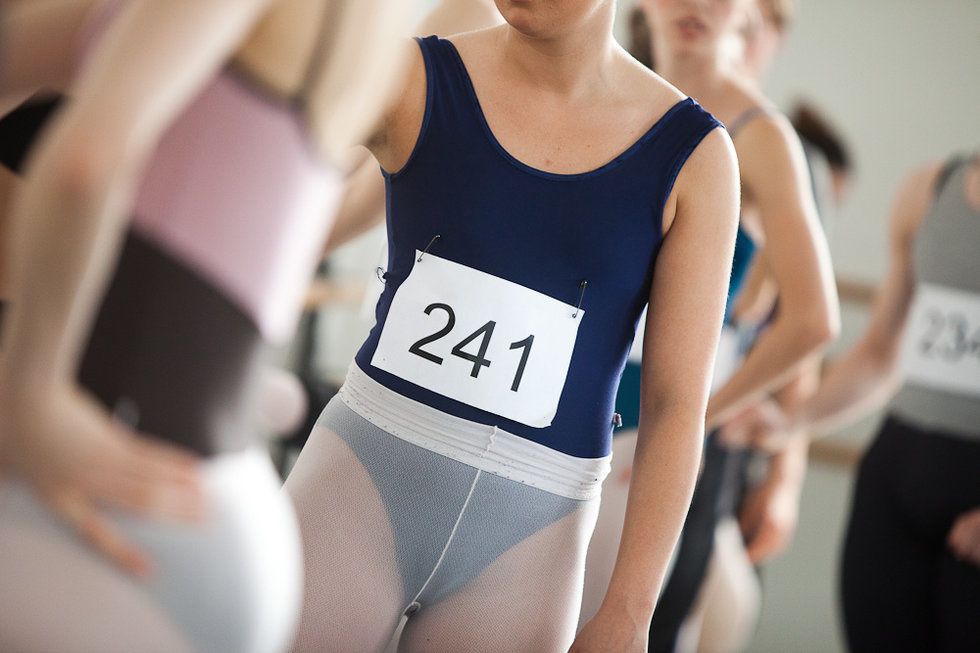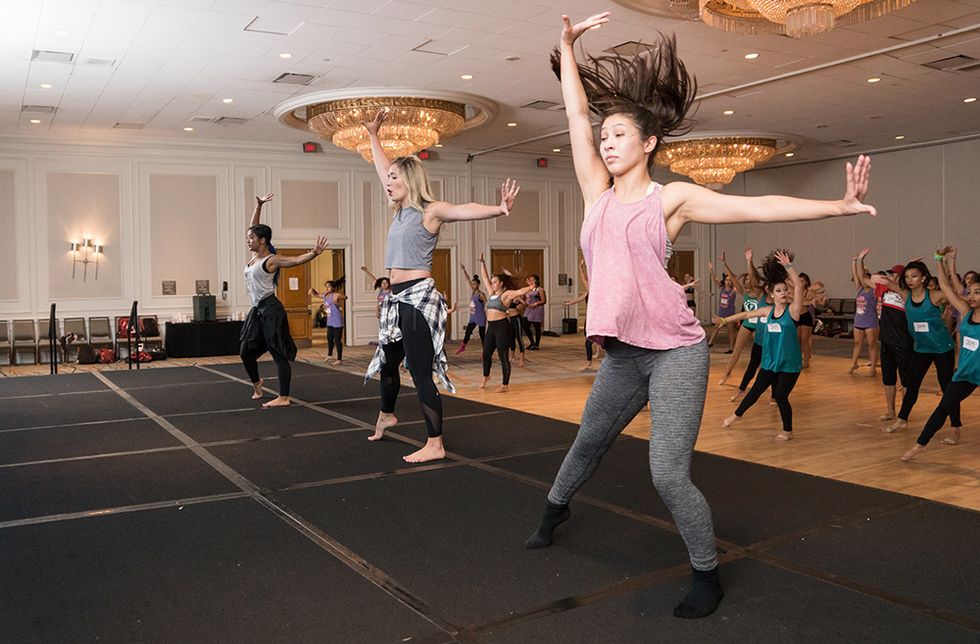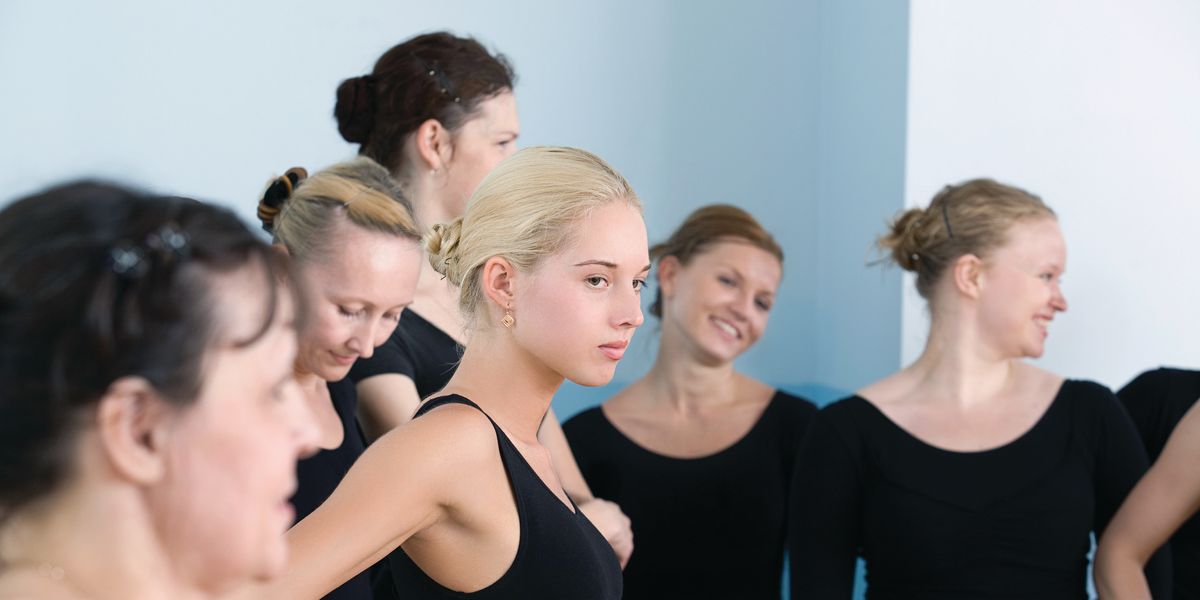Feeling Jealous in the Studio? Here Are 3 Ways to Cope
A classmate lands the role you wanted. Another dancer is always earning compliments from the teacher you can never seem to please. The dance world is full of opportunities to feel envious—and according to psychologist Nadine Kaslow, that is completely normal.
“To say you shouldn’t ever feel jealous is unrealistic,” says Kaslow, who works with dancers at Atlanta Ballet. “But when you become driven by it, rather than focusing on doing your best to improve, that’s when it turns harmful.” Luckily, there are ways to channel this negative emotion into positive growth.
1. Feel It
 Don’t be ashamed when envy strikes. Instead, acknowledge and process how you’re feeling. Photo by Matthew Murphy for Pointe.
Don’t be ashamed when envy strikes. Instead, acknowledge and process how you’re feeling. Photo by Matthew Murphy for Pointe.
“In dance, it can seem like the grass is always greener,” says Erin Fogarty, a teacher and director of programming at Manhattan Youth Ballet. “If you’re a jumper, you wish you could turn. If you’re long and leggy, you wish you could jump. People progress at different paces.”
There’s no reason to be ashamed when envy strikes. In fact, it’s better to acknowledge your feelings than to ignore them. “Bottled-up emotions can be dangerous,” Fogarty says. Unresolved jealousy can consume you, affecting how you view yourself and interact with your peers. You might experience physical side effects, such as excess muscle tension. Your artistry can even suffer when you’re closed-off emotionally.
You can’t move forward until you honestly assess and accept your state of mind. “Sometimes I encourage people to write down how they’re feeling,” Kaslow says. “They might discover something else at the root of the jealousy: They’re hurt, angry, betrayed or humiliated. Those feelings need to be dealt with as well.”
But remember: Pausing to validate your emotions isn’t the same as wallowing in them. “It’s fine to take a day to be mad, especially if you don’t feel like you can be in the studio without coming undone,” Fogarty says. “Then you have to get back to work.”
2. Talk About It
 Opening up to someone about how you’re feeling can help you move forward. Photo by Kevin Laminto via Unsplash
Opening up to someone about how you’re feeling can help you move forward. Photo by Kevin Laminto via Unsplash
After you’ve admitted your feelings to yourself, consider talking to a parent, teacher or close friend. Look for someone who will listen and perhaps share their own experiences, without encouraging the negative impulses that can accompany envy. “The wrong person could feed your jealousy instead of helping you understand it,” says Elizabeth Petrin, who teaches at Bobbie’s School of Performing Arts in Newbury Park, California. “You want someone who can build you up and offer advice.”
What if the friend you usually turn to is the person you’re jealous of? Taking the time to recognize your friend’s excitement can start to pull you out of your rut. But, Kaslow warns, “smiling and pretending everything’s fine when it’s not often comes across as phony” and can damage your relationship. “Being honest and vulnerable—’I am happy for you, but I’m also really disappointed right now’—can heal your wounds.”
If your dance environment has started to feel toxic, ask a teacher to facilitate a class or company discussion. “If people are constantly being negative about their own achievements or making friends feel bad for succeeding, it creates distance,” Petrin says. “When you’re no longer holding each other back, everyone can improve.”
3. Use It
 Use your jealousy as motivation. Photo by Hector Gamboa, Courtesy Petrin
Use your jealousy as motivation. Photo by Hector Gamboa, Courtesy Petrin
Acting on jealousy can be a problem—if your response is to say nasty things about your peers or to engage in sabotaging behavior. But there are also ways to use envy for good. The key is to focus on yourself, instead of on those around you. “If someone is doing something well, and I think about how I might adopt some of that, that’s motivating,” Kaslow says. “If I’m so focused on them that I lose sight of myself, that’s counterproductive.”
To come up with a game plan, get specific. “Is what you’re jealous about something you can fix?” asks Petrin’s choreography partner and fellow teacher Mandy Korpinen. You may not be able to change how you’re built—or what a choreographer is looking for—but you can improve your strength, flexibility, stamina and work ethic.
Of course, there’s a delicate balance between homing in on your growth and beating yourself up. If you have a tendency toward self-criticism, find ways to boost your spirits. “One of my teachers growing up made me write three things I was good at on the mirror in my room,” says Korpinen, “so every morning I was reminded of my strengths.”




